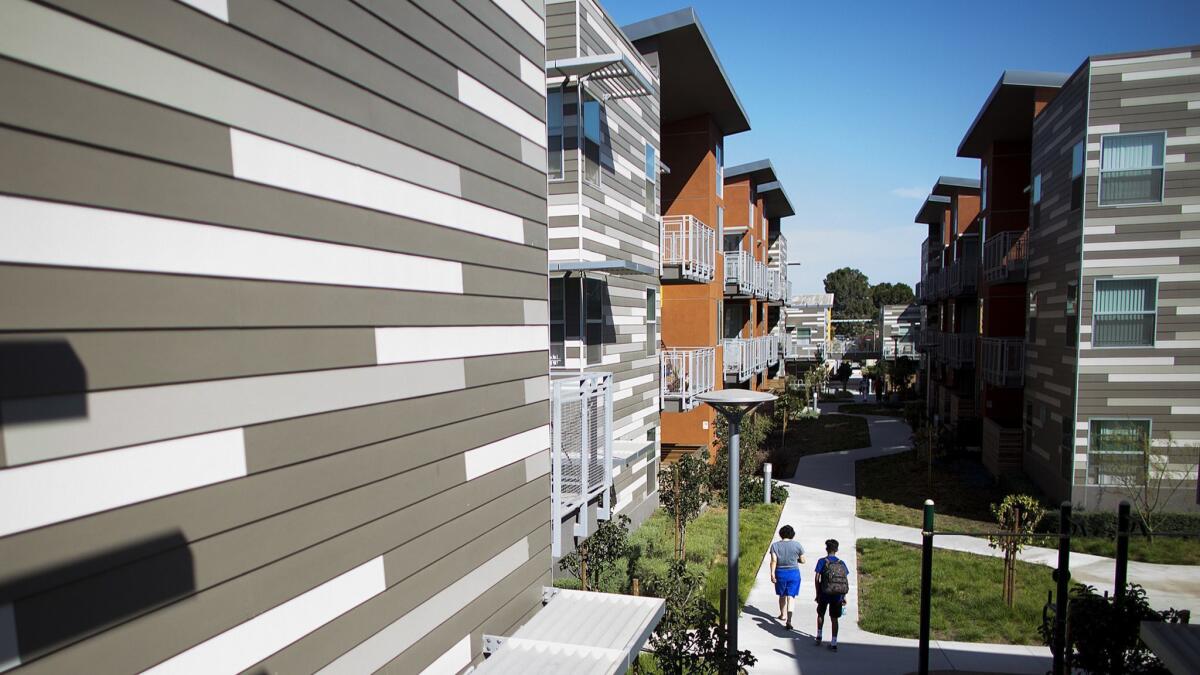As a mega-landowner, L.A. Unified has lots to figure out, a new report says

- Share via
The Los Angeles school system’s vast real estate holdings cost millions of dollars a year to maintain, but they also present an opportunity, according to a task force studying the district.
Some properties could generate millions for the financially stretched district, concludes a report the task force released Monday. Many could be used better to serve students and their families.
“We’re recommending three things: Take a careful inventory, figure out how best to utilize these properties and engage the community along the way,” said Austin Beutner, co-chair of the L.A. Unified Advisory Task Force.
The task force’s primary recommendation is that L.A. Unified should hire real estate experts by the end of next month, who would complete an analysis by September.
The nation’s second-largest school system owns 6,400 acres, an area larger than the city of Santa Monica. Its holdings include 1,200 schools and centers, spread out over 710 miles and 31 municipalities. Also in its portfolio are vacant lots, administrative buildings, operation plants and parking lots.
“The district lacks a comprehensive strategy to manage these properties and utilize each asset at its highest and best use to support the district’s goals,” the report states.
Such goals include academic improvement and easing budget problems exacerbated by growing pension and health benefits costs and declining enrollment.
“This is not an appeal to sell anything,” Beutner said. “You need a plan first and have to have a much longer horizon than today’s crisis.”
The report is the second from the 13-member task force that includes co-chair Laphonza Butler, the president of Service Employees International Local 2015, and Elise Buik, chief executive of United Way of Greater Los Angeles.
The first report tackled chronic student absenteeism and quickly led to pilot projects. Beutner said they’ve done well, and he expects them to go districtwide next year.
Beutner put together the task force last year with the blessing of L.A. schools Supt. Michelle King, who went on medical leave for cancer treatment soon after and was unable to return. Interim Supt. Vivian Ekchian is equally supportive, Beutner said.
The task force includes three members whose names have come up as possible King successors: Beutner, who was formerly the Los Angeles Times publisher; Wendy Greuel, a district parent and former L.A. city controller; and former Los Angeles City Administrative Officer Miguel Santana, chief executive of the Los Angeles County Fair Association.
The superintendent search is confidential, and it’s not clear whether any of them have submitted their names. Ekchian confirmed to The Times that she has applied.
The task force’s report gave some examples of underused properties, including 16 acres in a downtown industrial area and two spots in the west San Fernando Valley.
It also mentions successes, including the new YMCA adjacent to University High School in Sawtelle, on what used to be an empty lot. The 60,000-square-foot building serves students as well as area residents.
Such projects should happen elsewhere, said Beutner, who added that the Sawtelle project took too long — 12 years — to complete.
A second example of success, the Sage Park Apartments in Harbor Gateway, has 90 low-cost units on 5.7 acres adjacent to Gardena High. Eighty-three units are leased to low-wage district employees. District leaders had intended the Gardena units for teachers, but teachers make too much to qualify for the subsidized units.
More to Read
Sign up for Essential California
The most important California stories and recommendations in your inbox every morning.
You may occasionally receive promotional content from the Los Angeles Times.











